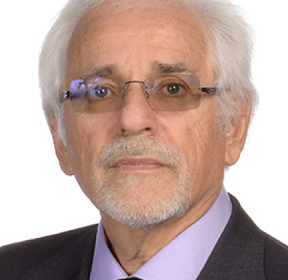Keynote Forum

Kenneth Serota
CanadaTitle: The Psychological effects of the COVID-19 pandemic among dentists: An evaluation of perceived stress, psychological distress and coping strategies
Abstract:
Given the unprecedented existential challenges of the SARS-CoV-2 pandemic on health care professionals (HCPs) worldwide, it is essential to monitor, examine, and understand the ongoing consequences and determine structured mitigation efforts for their short- and long-term control. We investigated the background of perceived stress among dental health care professionals (DHCPs) and identified risk factors contributing to perceived stress because of the COVID-19 crisis. We further sought to determine the hierarchy of coping management strategies which would prove most effective in mitigating the stress and psychological distress ensuant from the psycho-disruptions of the pandemic. Licensed dentists who were members of the Hungarian Dental Association were invited to answer an electronic test battery. Data pertaining to general demographic and dental related variables was electronically collected from 182 dental practitioners. Income and financial status were included among the general demographic individual and contextual variables, and aerosol propagation among the dental related variables. Factor analysis was used to ascertain COVID-19 related perceived stress. Distress manifested as impulsiveness, lack of interest in social connections, emotional disengagement, mood swings, and acknowledgment of emotional exhaustion because of the pandemic. Financial status, number of years in practice and the feeling that not even the strict compliance with professional rules can fully resolve the issues caused by aerosol propagation significantly predicted the level of perceived stress, while age, financial status and the feeling that not even the strict compliance with professional rules can fully resolve the issues caused by aerosol propagation significantly predicted the level of perceived distress.The randomization of the data controlled the relevant confounding factors pertaining to perceived stress because of contagion from aerosols and financial insecurity. Years spent in dental practice and age were protective factors against perceived stress. Physical activity and socialization were found to be the primary stress management strategies used to sustain and/or enhance mental health. Addressing the resolution of financial concerns, engaging in practice management revisions, and involvement with the implementation of infection control measures were perceived as being more useful than mindfulness and volunteering, techniques that are typically associated with behavioral psychotherapy for stress management. The findings suggest the need to develop support systems and include stress management education in the curricula of health care institutions, and as a component of continuing professional education programs, to foster positive mental health coping management strategies for HCPs.
Biography:
To be clear, I am not a researcher. I undertook this project after interviews with colleagues at the outset of COVID for clinial purposes. However, the discussion invariably redirected to their concerns for their careers, their fears about being infected, the effect on their family and their levels agitation, angst and depression. By chance this turned into the pursuit of a PhD in this area. In spite of literally no research background outside clinical dentistry, the effort is going remarkably well.

Title: A review of mental health responses to pandemics
Abstract:
OBJECTIVE: Author reviewed the literature published from 2005 regarding mental health responses to pandemics. METHOD: The review began with a computerized literature search. Further sources were located through citations from articles identified in the original search. RESULTS: The author synthesized the contents of the articles reviewed using the categories of 1) Identifying the mental health related implications of a pandemic as well as effects from being in quarantine 2) Effects on healthcare professionals 3) Identifying high risk populations 4) Optimizing screening protocols 5) Administering intervention and treatment effectively 6) Evidence based treatments targeting mental health symptoms CONCLUSION: Prior research has shown that there can be profound mental health related effects from a pandemic and those who are already dealing with mental illness have an exacerbation of symptoms. High risk populations should be identified with heightened screening, and appropriate evidence-based interventions administered which can help decrease mental health related symptoms.

Title: Unchanging the brain: how to cope with uncertainty during difficult times
Abstract:
Whether one is facing a global, personal, or employment crisis, or perhaps experiencing a mix of all three, building resilience will assist in providing hope for not only the present but the future. This presentation will focus on brain-behavioral impact of stress and a range of mixed emotions upon one’s health and happiness. Evidenced-based approaches and resources, including user-friendly applications to use during moments of challenge and hardship will be discussed. A sample “Care Plan” will be reviewed which may assist one to experience resilience leading to a sense of calm and confidence to handle issues of concern.
Biography:
Leonard-Zabel is a Full Professor of Psychology and serves as the Psychology Department Coordinator at Curry College in Milton, Massachusetts. She owns and operates a private clinic specializing in School Psychology/School Neuropsychology and Clinical Forensic Examining. She holds diplomat and fellow certificates/certifications in Neuropsychology, Forensic Counseling and Examining, Psychotherapy, Autism, Addictions, Cognitive-Behavioral Therapy, Clinical Anxiety, Disability Analysis, Brain-Behavioral International Coaching, Telepractice and in Homeland Security. She was awarded the Lifetime Achievement Award from the American Board of Disability Analysts. Dr. Leonard-Zabel is the recent recipient of the Lifetime Achievement in School Neuropsychology from the American Board of School Neuropsychology. She serves on the Learning Disabilities Worldwide Congress as one of the Board of Directors (LDW). Dr. Leonard-Zabel recently received international awards acknowledging her Keynote addresses encompassing school neuropsychological research on assessment approaches involving Autism Spectrum Disorders, Adolescent Addiction, and Mental Health focusing on the Anxious Brain, Assessment Practices, Learning Differences, Ethics & Law and Traumatic Brain Injury. Dr. Leonard-Zabel was awarded in December 2019 the title of Global Goodwill Ambassador (GGA), representing the USA with the “Humanitarian” designation for her volunteerism both nationally and internationally. Throughout her career at Curry College, she was awarded the Curry College Excellence in Teaching Researcher of the Year Award, Excellence in Teaching with Partnerships & Collaboration Award, Excellence and Research in the Field, and Person of the Year, acknowledging excellence in teaching, mentorship, collegiality, leadership, and community service. Dr. Leonard-Zabel presents nationally and internationally on an ongoing basis.

Bernard Mayer
FranceTitle: A new framework for the treatment of dissociative states through Functional Dissociation
Biography:
Bernard Mayer has many years of expertise in the treatment of simple and complex psychotrauma and dissociative states in his psychotherapy practice in Paris. President and founder of the IETSP: www.ietsp.com and co-founder of the AFPJ :www.pierrejanet. org , he is the creator of the Integrative Body-Mind Psychotherapy / TICE, certified practitioner in EMDR for more than 30 years, in Somatic Experiencing and Hypnosis. Member of the ESH, ESTD, he speaks at various conferences and symposiums in France and abroad on request. - It is a new psychotherapy which allows to reach the somatic and emotional unconscious memories (subcortical zones) which contain "the frozen memory of the trauma", the words are not enough, nor even the analysis... Moreover, amnesia is a central symptom of psychotrauma. It is a non-verbal and non-cognitive therapy that acts directly on the neurophysiological level and frees the blocked memories of the trauma It is a Psychotherapy and a Neuro-therapy

Title: Eazysense Nanotechnologies Inc Presents Neuromolecular Imaging for Mental Health
Abstract:
The superstar, Robin Williams, had a long documented history of clinical depression that has been shown to be empirically associated with the disorder of Parkinson. Nonetheless, it was later found during his autopsy that the neurotransmitter, dopamine,was missing, Actually, half of the biomarker, dopamine, was missing in the motor neurons in the brain of the beloved Robin Williams. Moreover, Lewy bodies were found! Lewy bodies contain the molecules that cause depression and it so happens that these Lewy bodies contain the molecules that lead to not only depression but also neurodegenerative disorders such as Alzheimer disease. Let’s look at this carefully. The discoveries made for our Robin, our star, were post-mortem, that is, after death. One woman is looking to change all this. Patricia Broderick has found a way to see inside the brain of the Parkinson patient LIVE! In fact, she has discovered the Tau Peptide, responsible for Alzheimer and Parkinson and she has made this discovery LIVE! Eazysense Nanotechnologies Inc.is the start-up company that has successfully manufactured the tiny probe, smaller than a human hair, for the human and the animal patient. The nanoprobe is named after her father, Paddy Broderick. The BRODERICK PROBE® senses the neurotransmitters as the subject walks. The nanoprobe sensors also see inside the brain of depression and bipolar diseases easily. Our new photodiode nanoprobe sensor is poised to revolutionize the industry. The nanosensor is comprised of carbon polymers and proteins from the opsin family that provide a new voltaic optical sensor. The polymeic carbon allotrope, fullerene, is, indeed, a semiconductor. In proud association with the Technology Commercialization Office, CUNY, the Reaearch Foundation of CUNY and its patent lawyers, Dr. Broderick has achieved the value of the Eazysense start-up company at the billion dollar acquisition level. The Broderick Brain Foundation is the non-profit arm of Eazysense Nanotechnologies Inc, in NY and is available worldwide for service. The Foundation is a 501 (c) (3) NY State Tax Exempt Organization. Support for this organization is tax-deductible to the extent of the law.
Biography:
Patricia A. Broderick has completed her PhD from St John’s University, Queens, NY, USA and her postdoctoral studies from The Albert Einstein Medical Center, Bronx, NY, USA and Cornell University Medical School, White Plains, NY, USA. Patricia serves as Tenured and Full Medical Professor in the Dept. of Molecular, Cellular and Biomedical Sciences at the City University of New York School of Medicine and as Director of the Neurobiology Course at the Sophie Davis School of Biomedical Education, CUNY School of Medicine, CCNY. A highly recognized expert and prominent editor, author, inventor and lecturer, Patricia has published more than 500 papers in reputed journals and sought after books and she serves as an editorial board member of repute worldwide. Dr. Broderick holds several patents and trademarks and is the Founder and CEO of Eazysense Nanotechnologies Inc.and the Broderick Brain Foundation

Afra Mahmood
USATitle: Mediating Effects of Self Concept and Social Identity between Peer Relations and Delinquency
Abstract:
Adolescent delinquency is a growing concern in different parts of the world and role of peer relations in delinquent behavior is well-researched subject. However, relationship between peer relations, self-concept , social identity, and delinquency is less known. This study examined the mediating effects of self-concept and social identity between peer relations and delinquency among adolescents in Pakistan. Survey research design was used through convenient sampling to collect data. The sample comprised of adolescents (N = 498; 218 female and 280 male adolescents) aged 11-18 years old. Participants provided data on questionnaires measuring self-concept, social identity, peer relations, and delinquency. Findings revealed that peer relation has significant impact on delinquency behavior and social identity of adolescents. However, peer relation was not found connected with self-concept significantly. Findings further indicated that social identity played meditating role between the relationship of peer relation and delinquency while self-concept did not mediate the impact of peer relation on delinquency. This study is helpful in determining factors leading to delinquency behavior and how delinquency behavior can be reduced by working on self-concept and social identity.
Biography:
Afra Mahmood holds degree of Master of Philosophy in Applied Psychology from Bahauddin Zakariya University, Multan, Pakistan. She served as Psychologist at Social welfare & Baitul Maal Department Punjab, Pakistan (2017-2020). She currently provides telehealth services as Clinical Therapist in Chicago.

Hareli F. G. Cecchin
BrazilTitle: Scoping review of 30 years of suicide prevention in university students around the world: efficacy, effectiveness, and cost-effectiveness
Abstract:
A scoping review of systematic reviews was carried out to identify evidence of efficacy, effectiveness and cost-effectiveness of universal and selective suicide prevention programs among university students worldwide. Five databases were reviewed using terms in English, Spanish and Portuguese. The following were the inclusion criteria: systematic review or meta-analysis or meta-synthesis, suicide prevention in college students; evaluation of the efficacy, effectiveness and/or cost-effectiveness of interventions; peer-reviewed studies. The quality of reviews was assessed. The field of study features three decades of publication in high-income countries. The strategy used, the components of the program and the target audience to which they are delivered interfere with efficacy. In the psychoeducation strategy, the experiential and didactic components are more efficacious in the knowledge about suicide. And the motivational enhancement component promotes greater self-efficacy in suicide prevention. Programs that take a multimodal approach are effective in increasing short-term attitudes related to suicide and reducing rates of completed suicide. The gatekeeper strategy delivered to peer counselors is the most effective one in the outcomes, including short-term and long-term knowledge about suicide and its prevention, self-efficacy in suicide prevention. A greater number of evaluated studies of gatekeeper interventions was identified, indicating a trend in this research field. No review addressed the effects on subgroups that were classified. Only one study addressed cost-effectiveness, pointing out that the psychoeducation and gatekeeper strategies have relevant net benefit rates. The findings indicate that components of the intervention and the target audience to which it is delivered influence efficacy.
Biography:
Hareli Cecchin is a PhD candidate in Clinical Psychology and Culture Department in University of Brasília (UnB), Master in Regional Development, specialist in Logotherapy and Existential Analysis and graduated in Psychology. She has been a psychologist at the Federal University of Tocantins since 2014. She is a member of the International Association for Suicide Prevention (IASP). She has experience in the field of Psychology, with an emphasis on School and Educational Psychology, working mainly on the following topics: suicide prevention, mental health of young people, social vulnerability, and gender.

Title: Training of Faculty and Staff in Recognising Undergraduate Medical Students’ Psychological Symptoms and Providing Support: A Narriative Literature Review
Abstract:
Mental illness among medical students in particular, and higher education students in general, is very high. Many measures have been suggested in order to improve the situation, including training members of faculty and staff. However, to the best of our knowledge there seem to be no studies proposing training programmes for medical schools’ faculty and staff in response to recognising students’ psychological difficulties and symptoms in order to provide the relevant support. Also, in cases where such training for supporting medical students with psychological symptomatology exist, the efficacy of the approach employed is not known. By employing a careful literature search according to published guidelines for narrative literature reviews, this study aimed to fill in this identified gap in the literature. From the literature search, 14 articles were included in this review and the results show that no training tailored for faculty and staff in medical schools was identified. However, articles that related to higher education were included because they were useful in providing insights for medicine, and show the following: (a) faculty and staff acknowledged the importance of mental illness among students, (b) many of them discussed with their students psychological symptoms and provided support, (c) they tended to feel unprepared for recognising students’ psychological symptoms successfully and providing support, (d) they embraced the idea of being trained, and (e) any training seemed to be helpful for members of faculty and staff. From the results of this narrative review, we propose the CReATE circular pathway to ensure a sustainable process of training and support for students’ development
Biography:
Hamreet graduated from McMaster University with a BSc in Life Science and a background in psychology, neuroscience, and behaviour. She is now in her second year of medical school at St George’s University of London and has been involved in studies related to mental health in medical professionals and students

Qiuqi Zhou
RussiaTitle: Cross-Cultural Comparison of Relationships between Empathy and Implicit Theories of Emotions (in Chinese and Russians)
Abstract:
The current manuscript presents the results of a cross-cultural comparison of the relationships between empathy and implicit theories of emotion in individuals from China and Russia. We hypothesized that the members of the Chinese culture would differ from the more Western Russian participants in terms of relationships between the various components of the emotional domain. Thus, we aimed to identify latent personality profiles while hypothesizing that the Chinese sample would demonstrate more prominent links between empathy and implicit theories regarding the possibility of controlling emotions. We also assumed that immediate social context could affect the results, and therefore, we compare two groups of Chinese participants—those living in China and those living in Russia, predominantly studying in Russian universities. The initial sample included Russians (N = 523), Chinese living in Russia (N = 376), and Chinese living in China (N = 423). However, following matching procedures to enable the sociodemographic comparability of samples, the final comparison was reduced to a final sample of Russians (N = 400), a sample of Chinese living in Russia (N = 363), and a sample of Chinese living in China (N = 421). We used latent class analysis and correlation analyses to test the study hypotheses. The study found that, unlike Russians, the Chinese participants demonstrated a positive correlation between incremental implicit theories of emotions and empathy. We also established significant group and gender differences. Russian women reported higher affective empathy than men, whereas Chinese women demonstrated higher affective empathy and cognitive empathy, as well as incremental implicit theories of emotion.
Biography:
Qiuqi Zhou became a PhD student 3 years ago. During the three years of her doctoral studies at Lomonosov Moscow State University, she has published 3 papers in reputed journals and participated in 4 conferences.

Title: The Mental Health of Older Adults in the Densely Populated Areas of Tacna Region—Peru, 2021: Implications of the COVID-19 Information
Abstract:
The purpose of this research was to analyze the implications of exposure to various news channels that broadcast information on COVID-19 and their impact on the mental health of older adults in the sparsely populated area of the Tacna Region during the year 2021. The present study used a descriptive correlational type of quantitative approach on a sample of 389 older adults aged 60 years and over, who were recruited by non-probabilistic convenience sampling. For the application of the survey technique, the instrument used was a questionnaire modified by the authors. In terms of research ethics for the development of the study, the respondents provided informed consent, and other ethical considerations were addressed. In relation to sociodemographic variables of mental health, it was found that women had a greater incidence of anxiety (p < 0.01) and that people with fewer years of study had a greater incidence of depression (p < 0.01) and anxiety in sparsely populated areas. Exposure to news through television was associated with depression, and news obtained from other people was associated with depression (p < 0.001). An association was also found between the number of hours of television news and stress (p < 0.05), and radio news was associated with anxiety (p < 0.05). In terms of psychological consequences, the highest mean for television exposure was fear, while the greatest psychological consequence of radio news was fear, followed by stress and awareness. Finally, negative, inverse, and significant relationships were found that indicate protective factors, such as depression with awareness and indignation, and anxiety was inversely related to awareness.
Biography:
University Professor at the Jorge Basadre Grohmann National University of Tacna, specialist in Health Services Management, Bachelor of Nursing, Master of Educational Technology, PhD in Psychology, Dr. in Nursing. With 30 years of experience, undergraduate teacher, postgraduate teacher at: UNJBG. Undergraduate and postgraduate thesis advisor, with publications in Latindex, Scielo and Scopus magazines. Semillero Mentor Currently Dean of the Faculty of Health Sciences
Keynote Forum

Lucia Monacis
ItalyTitle: Investigating the Buffering Effects of Greenery on the Adverse Emotional, Mental and Behavioral Health during the Pandemic Period
Abstract:
In light of the adverse emotional, mental and behavioral outcomes caused by the pandemic period, this research analysed the associations between emotional distress and poor health outcomes and the buffering effects of greenery on these outcomes. An online cross-sectional survey between June–November 2021 was distributed among 1314 young Italian adults. Bivariate associations and multivariate regression analyses were applied to the data. Findings showed that emotional distress was positively related to poor mental health outcomes and to some of the unhealthy behaviors. In addition, green pathways differently impacted on health: the indoor features confirmed buffering effects on adverse emotional and mental health responses, whereas the outdoor features played no salutogenic role. In conclusion, whereas the outbreak period of the pandemic has led to the rediscovering/reinforcement of the attachment to nature to cope with negative affective states, the successive waves characterized by selected limitations and new living rules of social adaptation may have brought about a reduced affinity toward nature. Target interventions in terms of biophilic design for indoor environmental sustainability are needed in order to increase the innate human–nature connection and thus to promote public health.

Title: A Brazilian Experience in Treating Borderline Personality Disorder Patients in a Specialized Academic Outpatient Clinic on the Outskirts of the City of São Paulo
Abstract:
Personality Disorders are a current challenge for health professionals, as well as for patients, family members, social groups and society as a whole. The evolution of knowledge and research in neuroscience, associated with the contributions of modern psychotherapy and treatment techniques, have brought professionals to a more optimistic view of these disorders, especially for Borderline Personality Disorder (BPD). Until recently, patients with this diagnose were considered extremely difficult to treat and with poor prognosis. However, in recent years, there has been a paradigmatic shift regarding the evolution and treatment for BPD. The accumulated knowledge of genetic, epigenetic and neurobiological factors that determine personality development, from temperament to character constitution, provided a greater understanding of the factors involved in the etiology and evolution of BPD. The experience of working with a population marked by economic and social vulnerabilities, in the suburbs of a megalopolis like São Paulo, associated with medical education and training of psychiatric residents, brought us important insights into the long-term follow-up of patients with severe BPD, considering the difficulties in relation to a scarce multidisciplinary team and therapeutic resources. The author aims to provide an academic landscape regarding the Santo Amaro Medical School outpatient clinic experience for severe patients with BPD, the main techniques for case management and the psychopharmacological treatment for this population.
Biography:
Graduation in Medicine in 1998, Santo Amaro Medical School (Santo Amaro University - “UNISA”) - São Paulo - Brazil. Following academic training in Psychiatry at Santa Casa Medical School (2001) with Certification from Brazilian Psychiatric Association (2003). Has clinical experience in Preceptorship with residents and was Assistant Psychiatrist and Professor of “Medical Psychology” at Santa Casa de Misericórdia de São Paulo Medical School until 2011. Current Professor of Psychiatry at Santo Amaro Medical School; Chief Psychiatrist of Bipolar Disorder and Personality Disorder Programs: Santo Amaro Medical School. Has Clinical Experience in Private Practice since 2001.

Mitha Al Balushi
Abu DhabiTitle: Association between Depression, Happiness, and Sleep Duration: Data from the UAE Healthy Future Pilot Study
Abstract:
The United Arab Emirates Healthy Future Study (UAEHFS) is one of the first large prospective cohort studies in the region which examines causes and risk factors for chronic diseases among the nationals of the United Arab Emirates (UAE). The aim of this study is to investigate the eight-item Patient Health Questionnaire (PHQ-8) as a screening instrument for depression among the UAEHFS pilot participants.
Biography:
Mitha Al Balushi is a research associate in the Public Health Research Center-New York University Abu Dhabi. She is a PHD candidate in public health-the institute of public Health of the UAE University. She Had post graduate Diploma in Diabetes from Sweden and her degree in nursing sciences from Griffith Australian University. Her experience is over 15 years in public health and clinical nursing care and research. Some of her research was published in peer reviewed high IF international journals. She presented her research in nation and international conferences. She is an active member of the Emirates Public Health Association.

